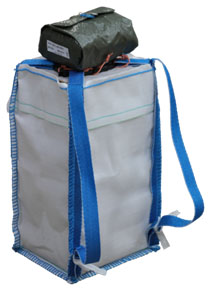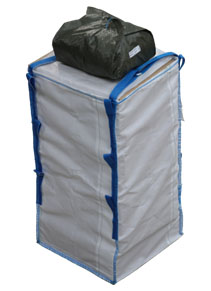- Air drop food, water and medical supplies by parachute
- Monitor and contribute to the management of disaster relief efforts
- UAV VTOL capability enables the UAVs to deliver aid to areas that are inaccessible by road

- Payload mass: 5-20 kg (10 kg nominal)
- Payload volume: 33 litres
- Minimum release altitude: 350 feet
- Maximum release airspeed: 130 knots
- Parachute landing speed: 15-30 mph

- Payload mass: 20 – 80 kg (40 kg nominal)
- Payload volume: 375 litres
- Minimum release altitude: 500 feet AGL
- Maximum release airspeed: 120 knots
- Parachute landing speed: 15-30 mph
The above information from Air Drop Box Limited (www.airdropbox.co.uk)
- Use of thermal imaging cameras on the UAV enables the detection of people in a disaster area.
- BML UAVs can land in rough weather conditions, due to the extra stability introduced by the additional electric motors on the lift pylon under each wing.
- UAVs can be used to transport blood, DNA and other medical samples to a medical centre for analysis. This can form part of a preventive health programme for rural communities.
- Unmanned aircraft, routinely used in other applications, could rapidly be re-tasked to contribute to humanitarian and / or disaster relief efforts, as and when required.